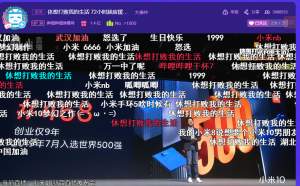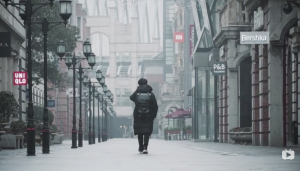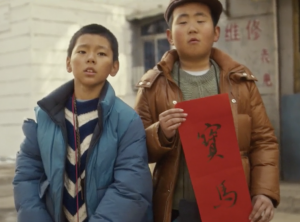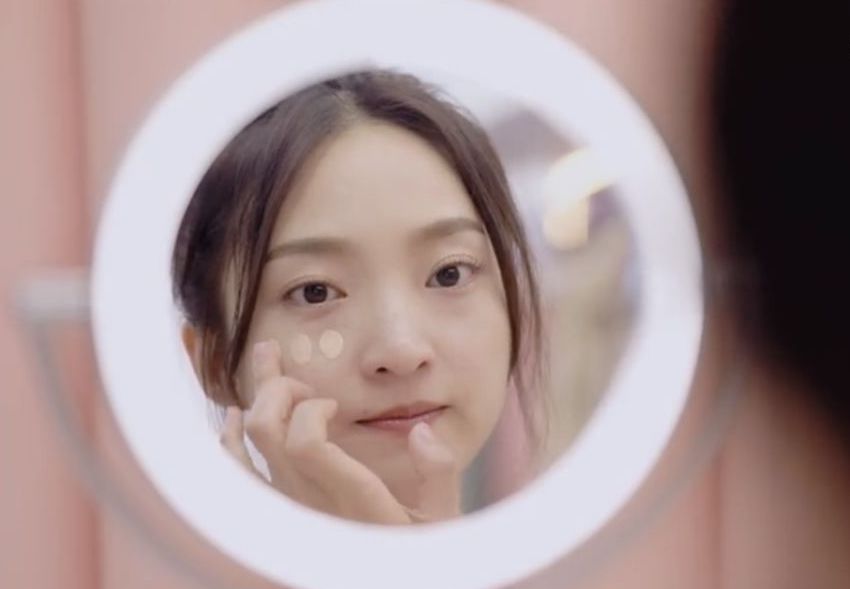
Preparing for a date with Lancôme foundation on “Heart Signal”
The value of beauty brand sponsorships on Chinese reality television has seen a marked increase this year, rising a reported 41.2 percent year-on-year in the first nine months of 2019 to RMB 2.41 billion ($340 million). This comes as beauty brands’ spending on more traditional forms of advertising has fallen over the same period — by some 5 percent for internet ads and 18 percent for TV commercials.
The shift towards sponsorships of reality shows reflects the need to establish stronger connections between beauty brands and their target consumers, which in China tend to be younger, with Gen Z and millennial shoppers as the prime demographic. While older Chinese consumers tend to wait until their incomes rise before “upgrading” their spending on high-end brands, those born after 1990 are more likely to seek out the highest-quality goods available from a younger age, with income a less relevant factor. Sponsoring reality television gives brands in the sector more opportunities for effective exposure and in-depth discussion of products in a manner relevant to the young female consumers who make up a large part of the audience, especially for shows on streaming platforms.
On the second season of Tencent Video’s romance-oriented reality series“Heart Signal,” which aired over the summer, French beauty brand Lancôme sponsored the series and became part of show through various brand integrations.
Lancôme was especially well suited for integration on “Heart Signal” because its brand identity has a strong affinity with the concepts of seeking love and establishing a romantic atmosphere that underlie the show’s IP. Lancôme’s brand slogan for the Chinese market, which translates as “more beautiful, and even happier” (更美丽, 更幸福), fits well with “Heart Signal’s” content, in which a group of young women and men attempt to impress each other while living under the same roof, with commentary from studio hosts sprinkled throughout.
The brand was featured in some ways that are fairly typical for Chinese reality shows, such as oral endorsements, scenery placements and on-screen text effects. In addition, more customized and immersive brand placements highlighted Lancôme lipsticks, foundations and fragrances throughout the entire season. Each of the four principal female participants on the show was paired with different Lancôme products intended to complement her personality and unique characteristics. The women were seen using and discussing the products as they prepared for dates and other events: Kai Wen applied Lancôme foundation as she prepares to go on her first solo outing with William, Zhang Tian wore a bold 196 lipstick for the date she initiated with Chen Yichen, and Zhen Zhu dabbed perfume to attend a birthday party. This technique played on China’s “fan economy” by turning each woman into an “ambassador” for a particular product, offering extra insight into how each was best used.
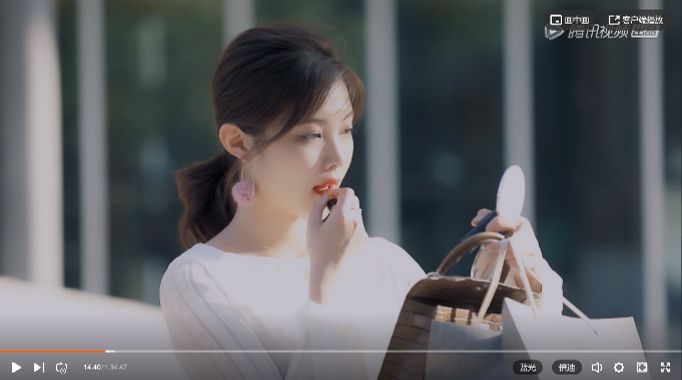
Lancôme cosmetics featured throughout season two of “Heart Signal”
The 196 lipstick, a bright orange-red color, was again worn by Wu Pei on her final date, transforming the usually lightly made-up woman with a shade promoted as a “date night essential.”
The broadcast period of the second season of “Heart Signal” coincided with the run-up to the Qixi Festival, also known as Chinese Valentine’s day, on August 7. Lancôme and Tencent Video promoted the brand’s offerings for the holiday via social media with the hashtag “196 Heart Signal” on Weibo, and discussions of the topic drew more than 64 million views. Lancôme offered special Qixi gift box with the products featured on “Heart Signal,” which were also marketed via full-screen ads on Tencent Video.



